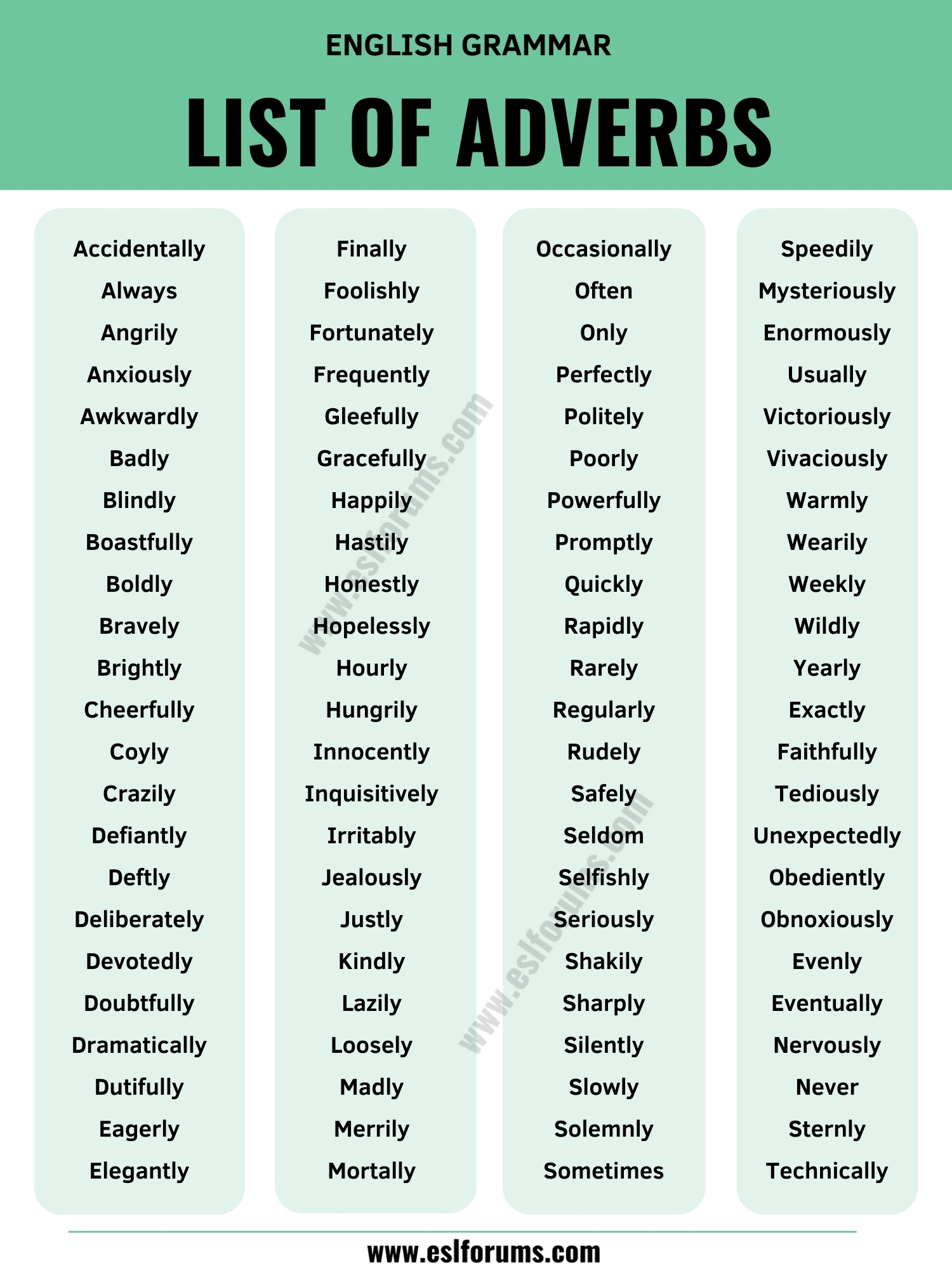Adverbs are an essential part of speech that add depth and detail to our language. They provide information about how, when, where, and to what extent an action is performed. Without adverbs, our sentences would lack the necessary description and nuance to fully convey our thoughts and emotions.
Whether you’re describing an action, an adjective, or another adverb, these versatile words play a crucial role in enhancing the clarity and complexity of our language.
What is an Adverb?
Adverbs are words that modify verbs, adjectives, or other adverbs. They can indicate time (often, soon), manner (quickly, carefully), frequency (always, rarely), degree (very, quite), or place (here, there). Adverbs can appear in various positions within a sentence, depending on the information they are providing.
For example, in the sentence “She sings beautifully,” the adverb “beautifully” modifies the verb “sings” by describing how she sings. In another example, “He ran quickly,” the adverb “quickly” modifies the verb “ran” by indicating how he ran.
Adverbs can also modify adjectives or other adverbs, as in the sentence “She is extremely talented,” where the adverb “extremely” modifies the adjective “talented” by intensifying its meaning.
It’s important to note that not all adverbs end in “-ly.” While many adverbs do have this ending, there are also adverbs that do not follow this pattern. For example, the adverbs “now,” “almost,” and “very” do not end in “-ly” but still serve to modify other words in a sentence.
Additionally, some adverbs can be formed by adding “-ly” to adjectives, such as “beautiful” becoming “beautifully.” This transformation allows adjectives to function as adverbs, providing more flexibility and versatility in our language.
In conclusion, adverbs are a vital component of language that enhance our communication by providing additional information about actions, adjectives, or other adverbs. By understanding how adverbs function and where they belong in a sentence, we can improve the clarity and effectiveness of our writing and speech.
